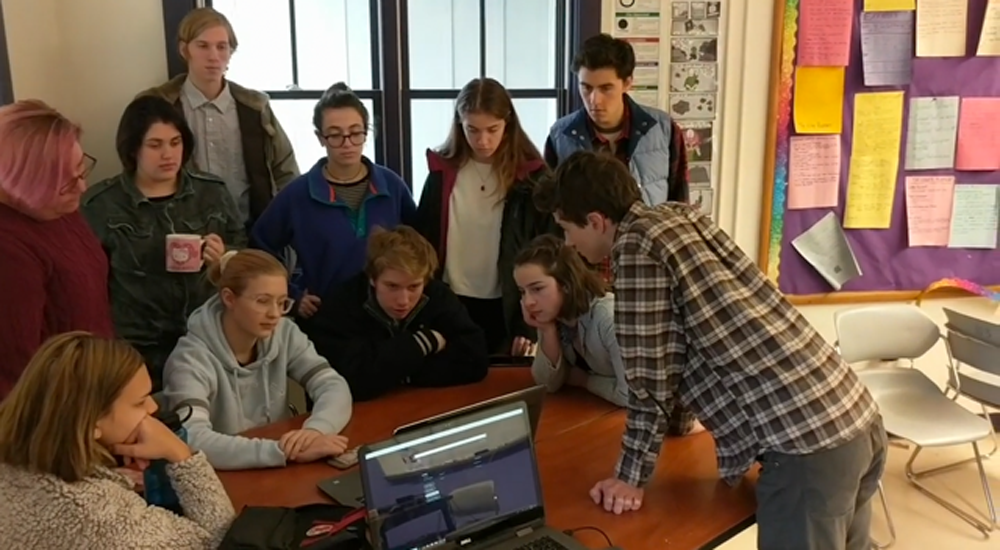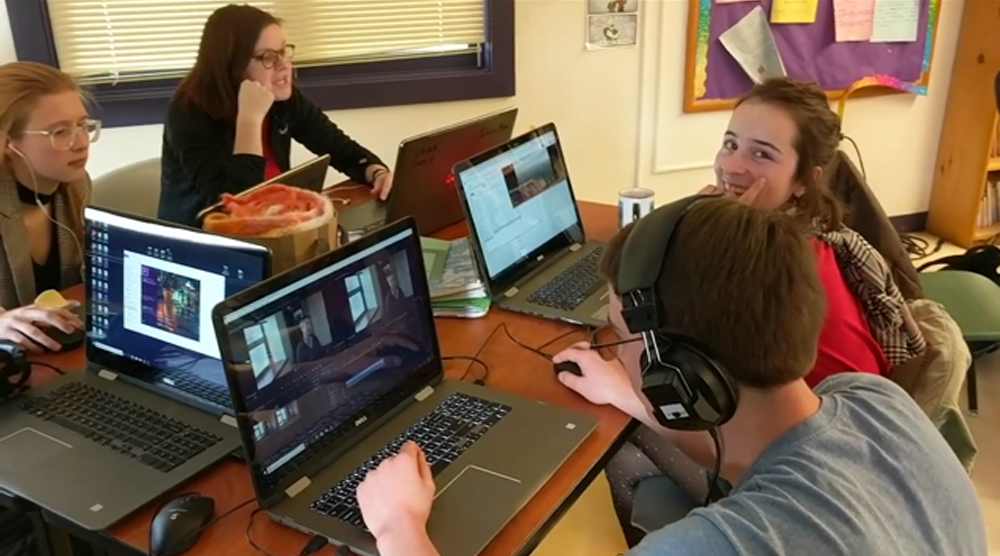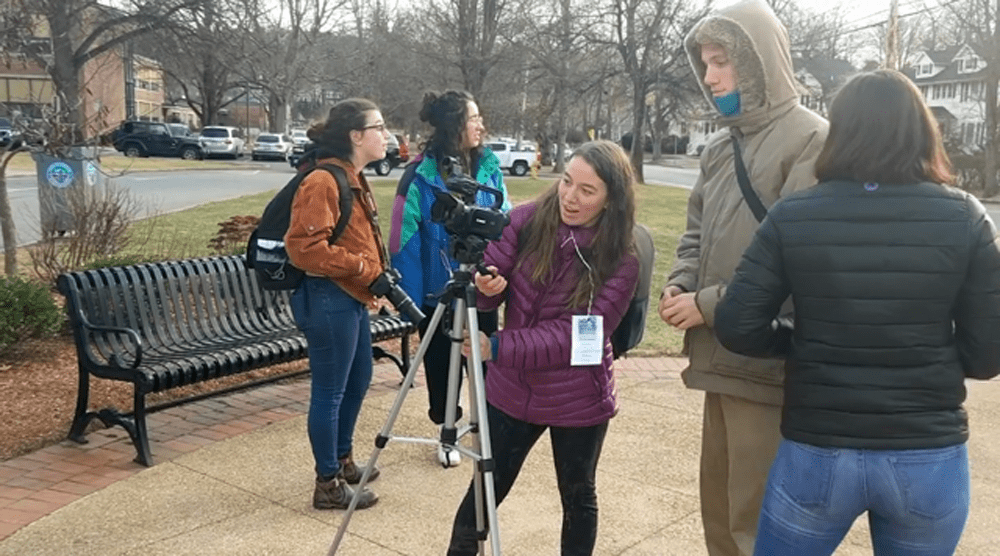Advertisement
High School Seniors Put Out 1st Documentary On Merrimack Valley Gas Explosions

Teenagers aren’t "bums who sit on our phones," says Alouette Batteau. “We’re not just on social media. We’re on the streets striking because we are trying to save the Earth and our lives.” Batteau is part of a team of 30 high school seniors who made a documentary that’s raising tough questions about fossil fuel dependence.
“Under Pressure” focuses on the Columbia Gas pipeline explosions that rocked the Merrimack Valley in September 2018, but it’s at least three films in one. A summary of the disasters (three explosions, some 80 fires, 23 injuries, and one death) is followed by an effective, mini lesson on how natural gas is harvested and distributed.
Then more than two dozen sit-down interviews (full disclosure: the film includes WBUR reporters Quincy Walters and Bruce Gellerman) unfold with the visual story of what happened mostly told in cutaways to still images and news footage. In these situations, the connection between what’s being said and what’s being seen can be unclear. Savvy audiences will also notice lapses in sound recording and mixing.
However technically unpolished, the 47-minute film shows maturity by including voices that are both critical of and satisfied with Columbia Gas’s response. It's seemingly the first documentary released about the explosions that happened a little over a year ago. The film also suggests that this response was felt differently by the three affected communities. Lawrence, Andover and North Andover have highly variable socioeconomic realities. (“Not everyone can stay at a hotel and eat out at restaurants” says the voice over.)
The film’s no-bones narration frequently takes a stand. “Upgrading the current infrastructure only perpetuates the use of fossil fuels and sentences us to decades of reliance on natural gas,” pronounces a student voice early on.
“Under Pressure” ends as a call to action, advocating for renewable energy and transparent governance. With nods to the Parkland anti-gun violence activists and Malala Yousafzai, the narration concludes, “You have power to change the system. We must act now.”
Each year for six years running, the 30 or so members of the senior class at Four Rivers Charter Public School in Greenfield, Massachusetts, collaborate on a documentary about energy. In fall 2018, the Merrimack Valley gas explosions topped their list because it was “a super current thing,” says Batteau. She served on the film’s edit and script committees. By quickly mobilizing to shoot interviews in the aftermath, she says, “We got raw experiences of people who still didn’t know what their lives were going to be like.”
It was difficult to get Columbia Gas to speak on the record, says Grace Cabral, now a first year student at Sarah Lawrence College. She also served on the script committee. When the company finally offered a spokesperson, she says it was sobering to realize that “his whole job is to be the news face in the wake of disasters like this.”

As for the film’s overt political stance on climate change, Batteau says that some of the film team wanted to keep it neutral, but “science isn’t something you can believe in or not. Climate change is a real thing. Our planet’s going to die and we’re the generation that’s going to deal with it.”
The film’s facts — and opinion — feel about right to Boston University Earth and environment professor Nathan Phillips. He appears as an expert voice in the film and has spoken on panels after it screens. For him, “Under Pressure” helps make an invisible, or literally buried problem, visible. “We’re at an energy crossroads and know things about the natural gas supply chain that aren’t living up to the billing,” he says. Phillips himself has conducted research on gas infrastructure and advocated policies in Massachusetts for nearly a decade.
While he praises the student filmmakers for helping to bring questions around natural gas infrastructure to more light, Phillips also acknowledges a recent groundswell of public concern. He cites Berkeley, California, as the first U.S. city to ban natural gas in new construction and how other cities, like nearby Brookline, are considering similar measures. “I feel like we’re on the threshold and cusp of widespread understanding that it’s not the simple narrative,” he says of natural gas being considered a clean, sustainable “bridge” fuel.

Four Rivers social studies teacher Alex Wilson has advised students on this project since its inception. In his experience, “Climate change is the issue on kids’ minds.” That lends itself to energy analysis, however, “there’s no perfect energy source. There’s no perfect way to do it,” he says. Above all, he wants his students to grasp the complexity and make the film they want to make. Four Rivers’ current class of seniors has already started tackling a documentary on the electrification movement.
Cabral says making the documentary was a wakeup call that “there’s no really better or worse [fossil fuel]. It’s all contributing to this irreversible effect on our planet.”
She may not be certain about her college major but Cabral knows 30 people who can make a movie. “I’m going to keep that in my back pocket,” she says.
“Under Pressure” has been screening throughout the Commonwealth, mostly at libraries and churches. On Sunday, Nov. 17 at 1:30 p.m. the film makes its festival debut as part of the Boston International Kids Film Festival.

